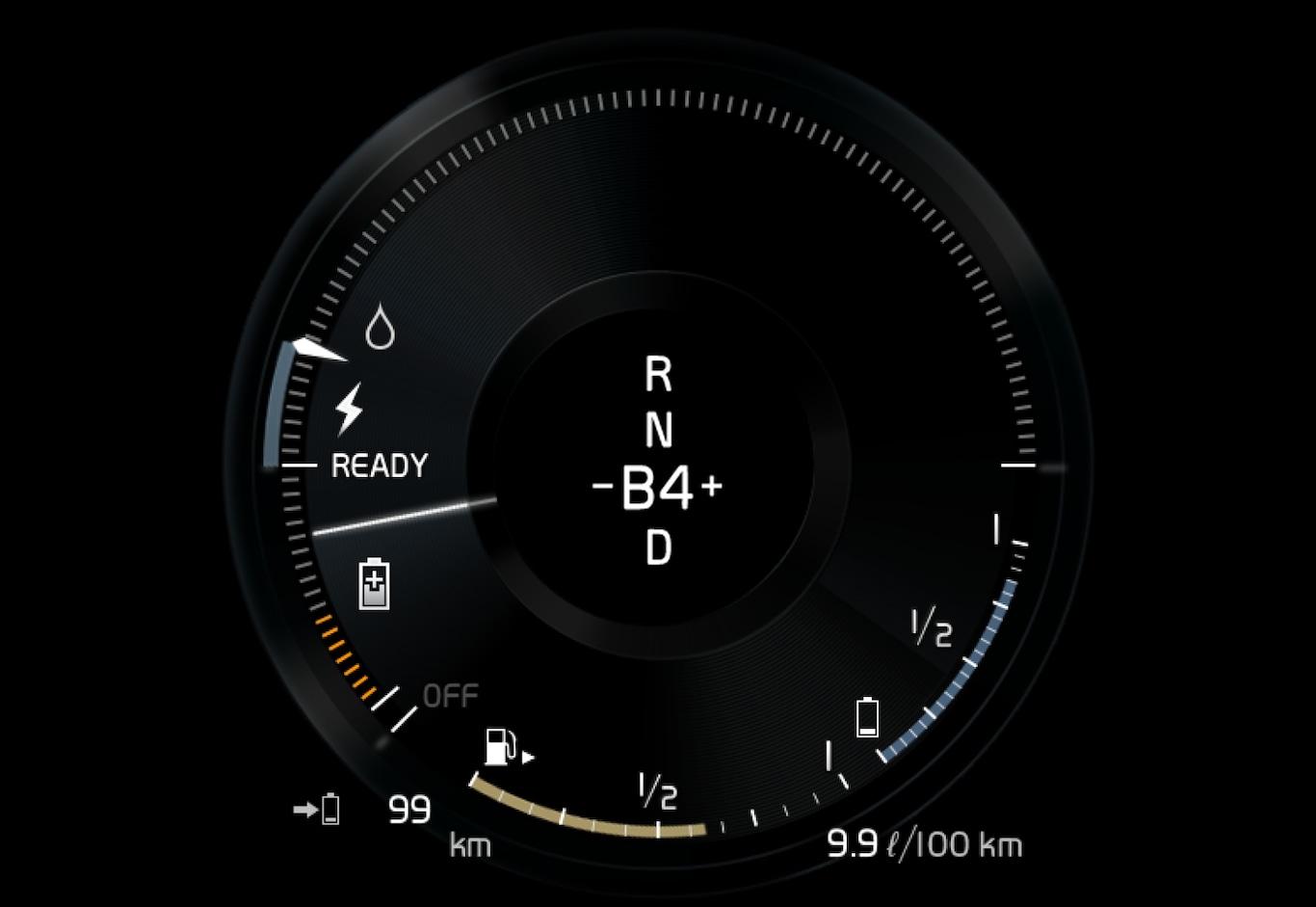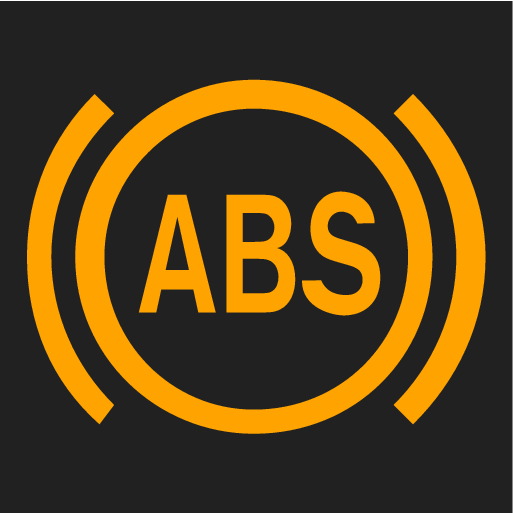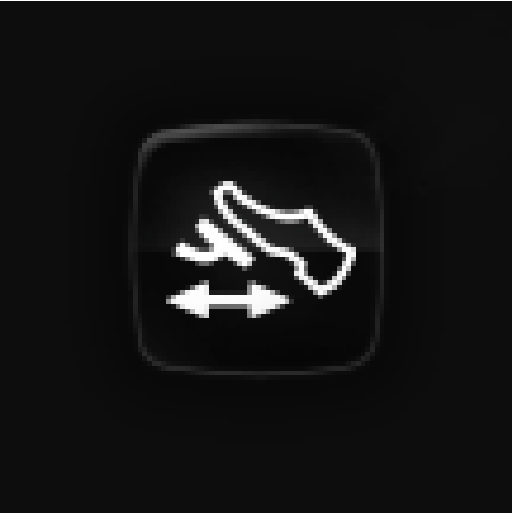The vehicle is equipped with two brake circuits. If one brake circuit is damaged, the brake pedal may go down further when depressed. More pressure will then be required from the driver for normal braking effect.
Warning
If the brake pedal is used when the vehicle is switched off, the pedal must be depressed with greater pressure, past the normal braking position, in order to brake the vehicle.
In very hilly areas or when driving with a heavy load, gear position B can be used to augment the brakes with engine braking.
Use the Off Road drive mode to increase the engine braking effect when driving on steep downgrades at low speeds.
Anti-lock brakes
The vehicle is equipped with an Anti-lock Braking System (ABS1), which helps prevent the wheels from locking and helps maintain steering control when braking. Vibrations may be felt from the brake pedal when ABS is operating, which is normal.
After the vehicle is started, a brief test of the ABS system is automatically performed when the driver releases the brake pedal. An additional automatic test of the system may be performed when the vehicle is traveling at a low speed. During the test, the brake pedal may feel as though it is pulsating.
Light braking charges the hybrid battery
When the brakes are applied lightly, the electric motor braking function is used. This converts the vehicle's kinetic energy into electrical energy, which is used to charge the hybrid battery. When the battery is being charged with the electric motor braking function, this will be indicated in the instrument panel.

This function is active at speeds in the range of 150-5 km/h (93-3 mph). When braking at speeds outside of this range, or during harder braking, the hydraulic braking system is used to augment braking. This is indicated in the instrument panel with the pointer down in the red area.
Symbols in the instrument panel
| Symbol | Meaning |
|---|---|
  | Check the brake fluid level. If the level is low, fill brake fluid and check to determine the reason for the loss of brake fluid. |
  | Fault in pedal sensor. |
  | Steady glow for 2 seconds after the engine is started: Automatic function check. Steady glow for more than 2 seconds: Fault in the ABS system. The vehicle's regular brake system is still working, but without the ABS function. |
 | If the message Brake pedal Characteristics changed Service required is displayed, the "Brake-by-wire" system is not functioning properly. The brake pedal must be depressed with greater pressure, past the normal braking position, in order to brake the vehicle. |
Warning
If the warning symbols for both brake fault and ABS fault are lit simultaneously, there may be a fault in the brake system.
- If the brake fluid reservoir level is normal when this occurs, drive carefully to the nearest workshop to have the brake system checked - an authorized Volvo workshop is recommended.
- If the brake fluid has fallen below the MIN level in the brake fluid reservoir, the vehicle should not be driven until the brake fluid has been filled. The reason for the brake fluid loss must be checked.